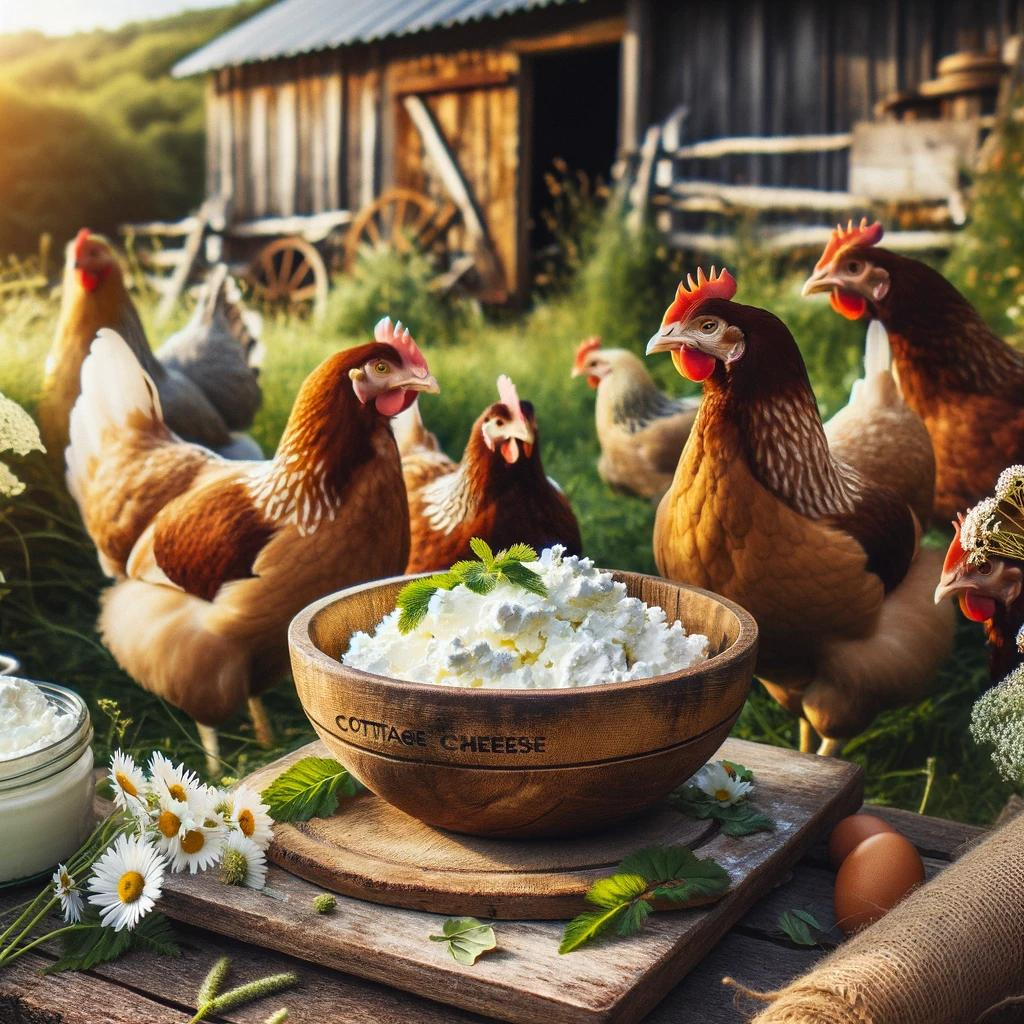
Yes, chickens can consume cottage cheese as part of their diet. Cottage cheese provides a valuable source of protein, which is essential for muscle development, feather growth, and egg production in chickens. Additionally, it contains calcium, aiding in bone health and supporting proper eggshell formation.
Can Chickens Eat Cooked Cottage Cheese?
While cooked cottage cheese is safe for chickens to eat, it’s unnecessary to cook it specifically for them. Whether raw or cooked, cottage cheese retains its nutritional value, providing chickens with protein and calcium. However, it’s essential to avoid adding any additional ingredients like salt or seasonings that could be harmful to chickens.
Is Cottage Cheese Safe for Chickens to Consume?
Yes, cottage cheese is generally safe for chickens to eat. It’s a wholesome and nutritious food that can be beneficial for their overall health and wellbeing. However, like any treat or supplement, it should be offered in moderation to prevent nutritional imbalances and ensure chickens maintain a balanced diet.
Can Cottage Cheese Be Given to Chickens as a Treat?
Yes, cottage cheese can be given to chickens as an occasional treat. Many chickens enjoy the taste and texture of cottage cheese, making it a popular choice among poultry owners as a treat or snack.
What Nutritional Benefits Does Cottage Cheese Offer to Chickens?
Cottage cheese is rich in protein, which is essential for various physiological functions in chickens, including muscle development, feather growth, and egg production. Additionally, it contains calcium, a vital mineral necessary for strong bones and eggshell formation.
Can Baby Chicks Safely Eat Cottage Cheese?
Yes, baby chicks can safely eat cottage cheese in small amounts. However, it’s crucial to provide them with a balanced chick starter feed specifically formulated to meet their nutritional needs for growth and development.
Should Cottage Cheese Be Given to Chickens in Moderation?
Yes, cottage cheese should be given to chickens in moderation. While it offers valuable nutrients such as protein and calcium, overfeeding can lead to nutritional imbalances and potential health issues. It’s best to offer cottage cheese as an occasional treat or supplement rather than a primary food source.
Can Cottage Cheese Cause Digestive Issues in Chickens?
While cottage cheese is generally safe for chickens, overconsumption can lead to digestive issues such as diarrhea or upset stomachs. It’s crucial to offer cottage cheese in moderation to prevent such problems.
Can Cottage Cheese Impact Egg Production in Chickens?
Cottage cheese can positively impact egg production due to its high protein content, which supports overall health and reproductive functions in chickens. However, excessive consumption may lead to imbalances and affect egg laying negatively.
How Should Cottage Cheese Be Prepared for Chickens?
Cottage cheese can be offered to chickens as is, without the need for additional preparation. It can be served plain or mixed with other ingredients, depending on the preference of the poultry owner.
Are There Any Risks Associated with Feeding Chickens Cottage Cheese?
While cottage cheese is generally safe for chickens, overfeeding can lead to nutritional imbalances and potential health issues. Additionally, flavored or seasoned cottage cheese should be avoided, as these may contain ingredients harmful to chickens.
Can Cottage Cheese Be Mixed with Other Chicken Feed?
Yes, cottage cheese can be mixed with other types of chicken feed to provide a varied diet. Mixing it with grains, vegetables, or other protein sources can enhance the nutritional value of the feed.
What Types of Cottage Cheese Are Suitable for Chickens?
Plain, unflavored cottage cheese without additives or preservatives is suitable for chickens. Organic or non-GMO varieties may offer additional benefits, but ensure it’s low in sodium and doesn’t contain ingredients harmful to chickens.
Can Chickens Eat Cottage Cheese Whey?
Yes, chickens can consume cottage cheese whey, which is the liquid byproduct of cheese production. It contains protein and other nutrients beneficial for chickens, making it a suitable addition to their diet in moderation.
How Can Overconsumption of Cottage Cheese Be Prevented in Chickens?
To prevent overconsumption, offer cottage cheese to chickens as an occasional treat or supplement rather than a primary food source. Limit the amount given and ensure it’s part of a balanced diet to avoid nutritional imbalances.
*Always speak with your veterinarian before adding a new food to your chicken’s diet.